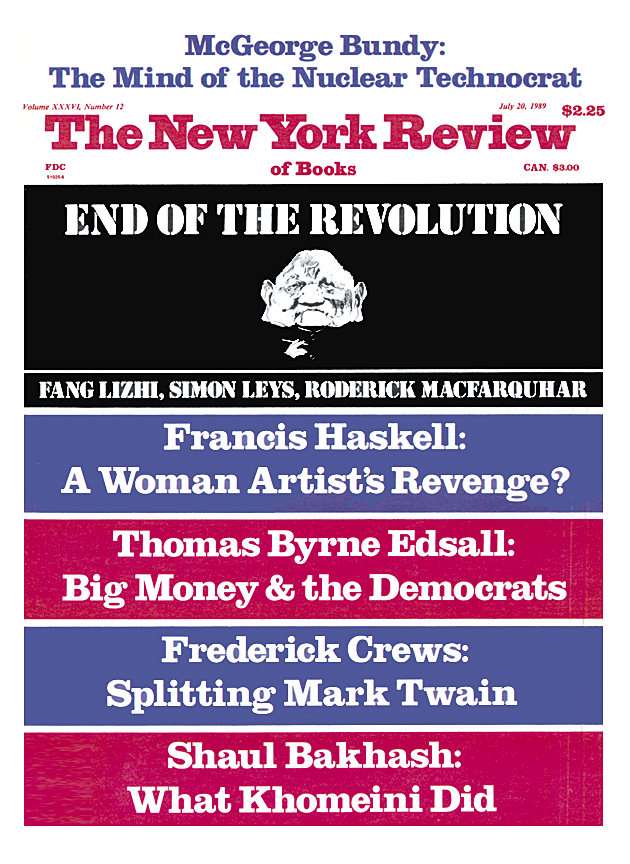In response to:
The Lovable Analyst from the December 8, 1988 issue
To the Editors:
May I first say how pleased I was to read the review by Professor Grosskurth of The New York Review of Books of The Clinical Diary of Sándor Ferenczi [NYR, December 8, 1988], edited by Judith Dupont and translated by Michael Balint. There has been so much mythology surrounding both Freud’s relation to Ferenczi and Ferenczi’s own career, that it is good at last that the diary has been published, and that it has been reviewed with so much understanding.
My reason for writing is to correct the impression, conveyed in the final paragraph of the review, that Michael Balint wanted to postpone the publication of the Freud-Ferenzci letters, and that since his death those of us in charge of them have done the same. The reviewer is indeed right to say that, to have a complete understanding of Ferenczi’s life, we “desperately need to have the long-withheld Freud-Ferenzci letters published.” In fact, however, it was much earlier—in the late 50s and early 60s—that Michael Balint was forced to postpone their publication, not because he wished to do so, but because the Freud family were unwilling to publish the whole of the correspondence and would only agree to publish if some of the letters were withheld. Michael Balint would not agree to this, and so the letters were not published. Furthermore, he wished—and I am of the opinion that he was right—that the diary, which has now been published, should be published at the same time as the letters. Although he had completed the translation of the diary into English himself, he withheld that; and when he died, in 1970, he handed it to me to see that the letters were published as soon as possible and at the same time as the publication of the diary.
After Michael Balint died I started work immediately on preparing the correspondence for publication and quite soon after did so in collaboration with two colleagues. I also handed over the diary to Dr. Dupont and other colleagues. But it was not until after Anna Freud died (the last member of the Freud family able to prevent complete publication) that we were able seriously to proceed with the work, which was of considerable magnitude. The main reason why the Freud-Ferenzci letters are still not ready for publication today is the need for the enormous amount of work involved to be done by a really experienced editor, and the difficulties of financing this. Dr. Dupont decided not to withhold the diary from the public any longer, although, as your reviewer rightly says, a complete understanding of what went on between Freud and Ferenzci and an insight into Ferenzci’s character will be achieved only when the correspondence is published.
Thus, the fact is that those responsible for the publication of the letters have not held back deliberately and fully realize the extent of their responsibility to publish. We also realize that this work which consists of nearly 2,000 letters has to be done in a scholarly way. Michael Balint regarded it as one of the most important aspects of his life’s work, equally as important as the publication of his own papers and books.
Enid Balint
Wiltshire, England
This Issue
July 20, 1989


